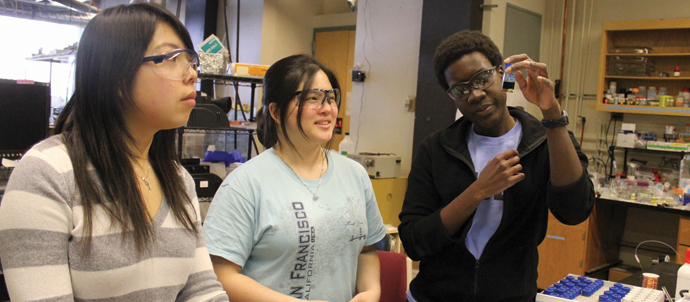
In Course X’s flagship laboratory course, 10.26, undergraduates are confronted with real-world problems requiring solutions with fixed deadlines and a limited budget, such as developing new approaches to biofuels as shown here.(Image courtesy of Melanie Miller.)
Featured Courses
Research in cutting-edge industries, including nanotechnology and biotechnology, and in traditional areas of inquiry depend on chemical engineers to decipher molecular information in order to develop new products and processes.
Our graduates work in a broad range of fields and create innovative solutions to important industrial and societal problems. They develop clean and sustainable energy systems, make advances in the life sciences, design and produce pharmaceuticals, and discover and create new materials.
The first chemical engineering curriculum at MIT was offered in 1888 and helped to establish chemical engineering as a discipline. Since then, members of the MIT Department of Chemical Engineering have developed the tools and guidelines to define and advance the field. The department has led the nation in awarding graduate degrees, and its nearly 6,000 living alumni have distinguished themselves as leaders in industry, government, and academia. We maintain strong ties with other departments within MIT and institutions and industries worldwide.
Chemical Engineering Courses
-
- Course #
- Course Title
- Level
Archived Chemical Engineering Courses
Some prior versions of courses listed above have been archived in OCW's DSpace@MIT repository for long-term access and preservation. Links to archived prior versions of a course may be found on that course's "Other Versions" tab.
Additionally, the Archived Chemical Engineering Courses page has links to every archived course from this department.










